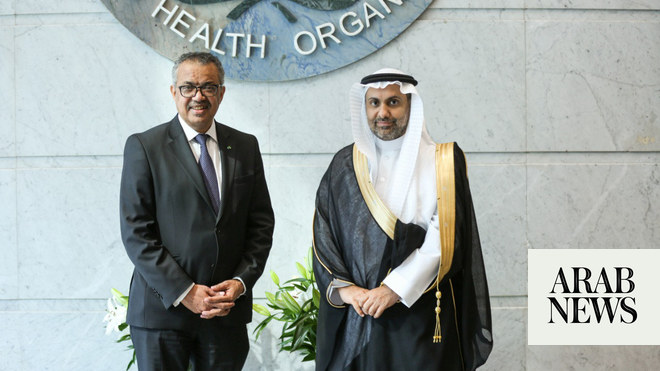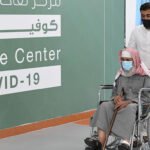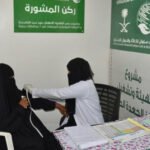
RIYADH: Saudi Health Minister Fahad Al-Jalajel recently met with the director general of the World Health Organization, Tedros Adhanom Ghebreyesus, in Cairo.
The meeting was held on the sidelines of the 69th regional summit of the WHO Committee for the Eastern Mediterranean.
Both parties discussed the future Saudi role within the WHO, the support needed to facilitate further use of artificial intelligence applications in public health and measures to confront the rising threat of antimicrobial resistance.
Al-Jalajel also met Egyptian counterpart Khaled Abdel Ghaffar and was given a tour of the Egyptian Medicine City Gypto Pharma, which was built in record time during the COVID-19 pandemic.
The Saudi minister’s three-day trip included meetings with counterparts in Bahrain, Sudan, Jordan and Pakistan, in which bilateral cooperation was discussed as well as mechanisms to address the challenges facing public health.
Al-Jalajel detailed the Saudi Ministry of Health’s experience in dealing with medical emergencies during COVID-19, and the results that can be shared with other Arab countries.
On Monday, the Saudi Health Ministry and WHO launched a five-day rapid response team training program as part of health emergency preparedness activities.
Forty-two trainees from different health directorates and representatives from all regions of the Kingdom will take part.
The WHO has developed a training package, which includes a set of educational materials and guidance tools to support member states in planning, activating and evaluating the training of rapid response teams.
The program aims to strengthen the readiness systems of member states, provide the necessary support and guidance to implement a sustainable plan, and improve the skills of rapid response teams, qualifying them to work as trainers in the field.
Training will be conducted in an interactive manner that includes lectures and simulations, delivered by personnel accredited by the WHO and the US Centers for Disease Control and Prevention.







